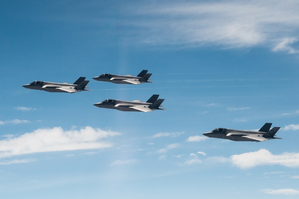Seoul: South Korea’s military on Monday staged an air exercise near the border with North Korea in response to the latter’s planned launch of what it claims to be a military spy satellite.
Around 20 fighter jets, including F-35A stealth fighters, conducted the drills in a central region south of a no-fly-zone near the inter-Korean border, the Joint Chiefs of Staff (JCS) said, hours after North Korea notified Japan of its plan to launch a space rocket carrying a satellite between Monday and midnight of June 3, Yonhap news agency reported.
“This strike package exercise was conducted to demonstrate the resolve and capabilities to punish immediately, strongly, and until the end, if the enemy undertakes a provocation,” the JCS said.
North Korea’s notice came before South Korean President Yoon Suk Yeol, Chinese Premier Li Qiang, and Japanese Prime Minister Fumio Kishida held a trilateral meeting in Seoul on Monday.
Yoon and Kishida have called on North Korea to cease its launch plan.
According to Kyodo News, North Korea designated three areas where debris will fall — two west of the Korean Peninsula and the other east of the Philippines’ island of Luzon.
Pyongyang has made public a plan to launch three more satellites this year following its first military reconnaissance satellite launch in November.
The launch plan comes despite international criticism that any launch using ballistic missile technology violates UN Security Council resolutions.
“North Korea’s purported military spy satellite launch is a provocative act that breaches the UN Security Council resolutions, and our military will implement measures that demonstrate our powerful capability and determination,” JCS spokesperson Col. Lee Sung-jun said in a press statement.
Last week, the South Korean military said it had detected apparent signs of Pyongyang preparing for a military spy satellite launch at a launch site on its west coast.
Observers said that North Korea appears intent on securing intelligence, surveillance, and reconnaissance (ISR) assets as it is far behind the allies in ISR capabilities despite its focus on developing an array of formidable weapons systems, including submarine-launched ballistic missiles and tactical nuclear arms.
–IANS


Comments are closed.